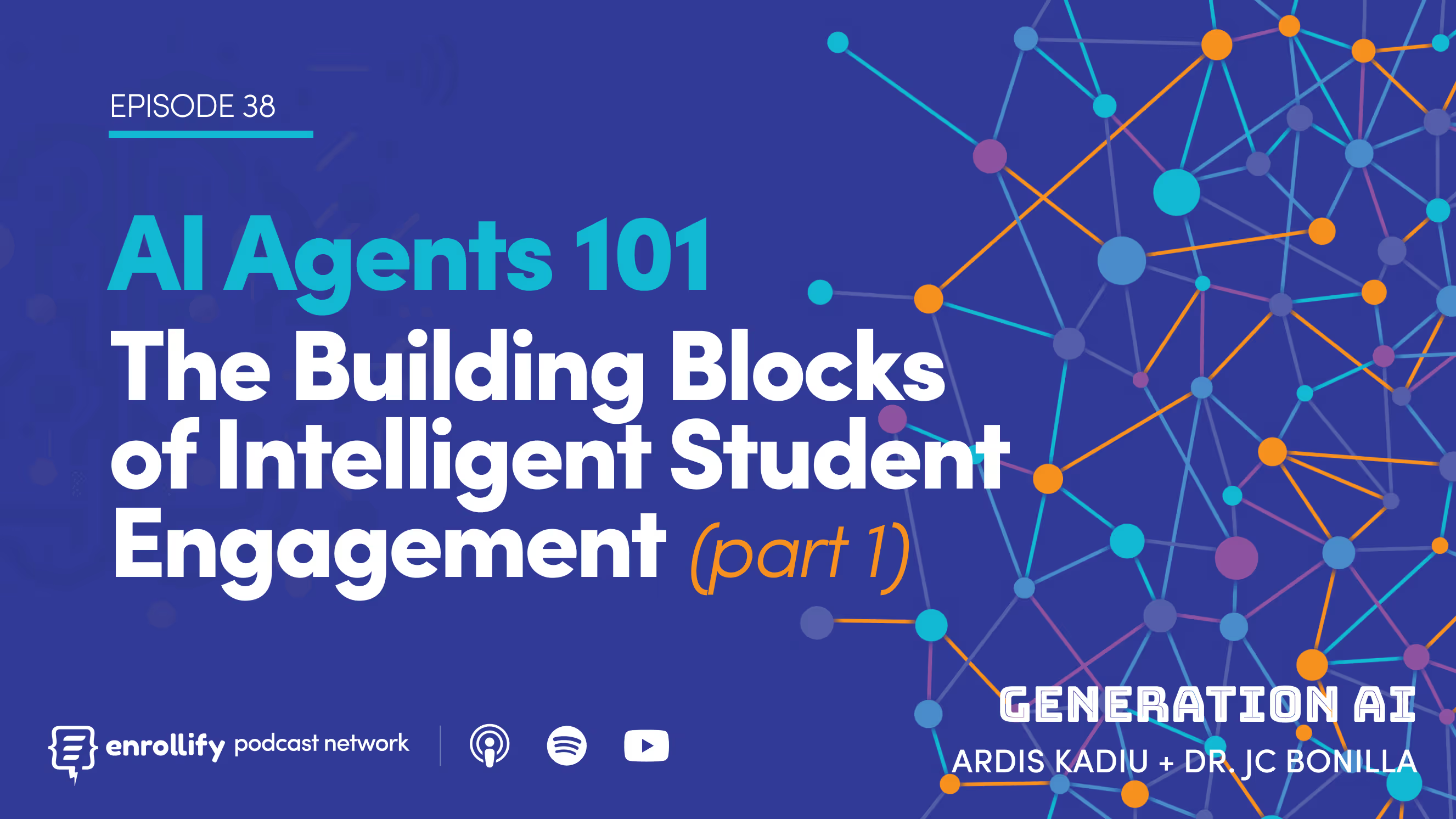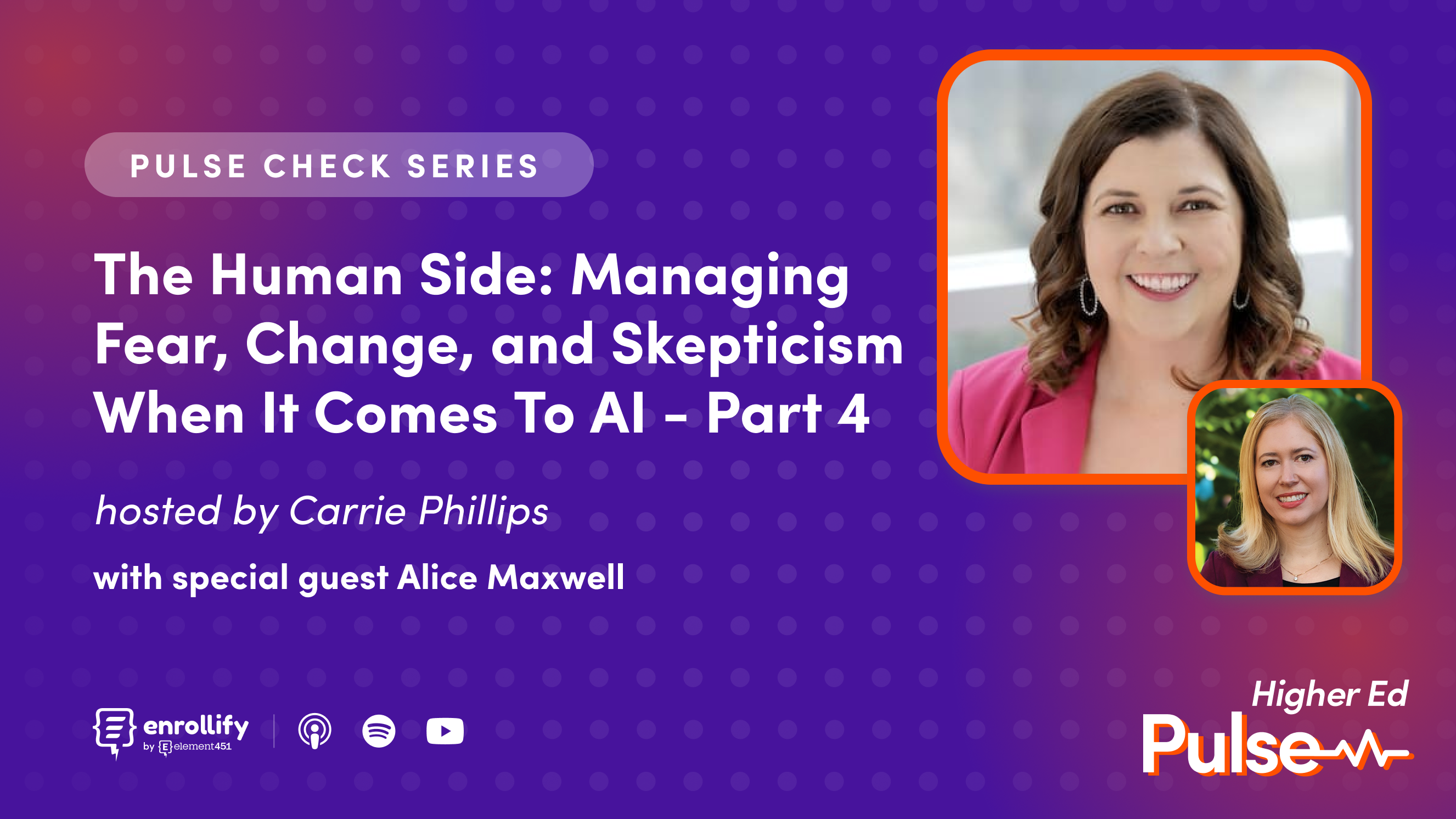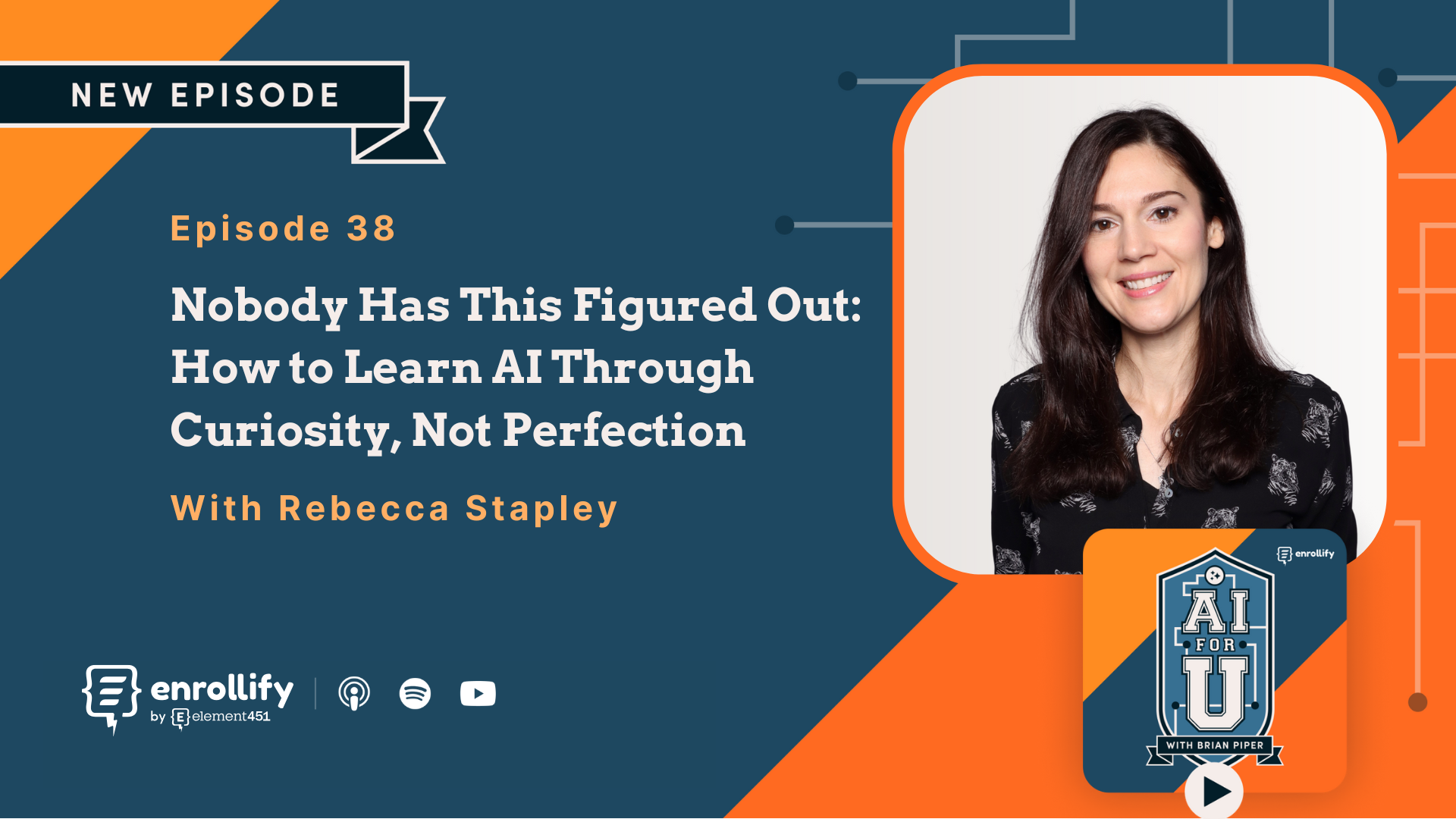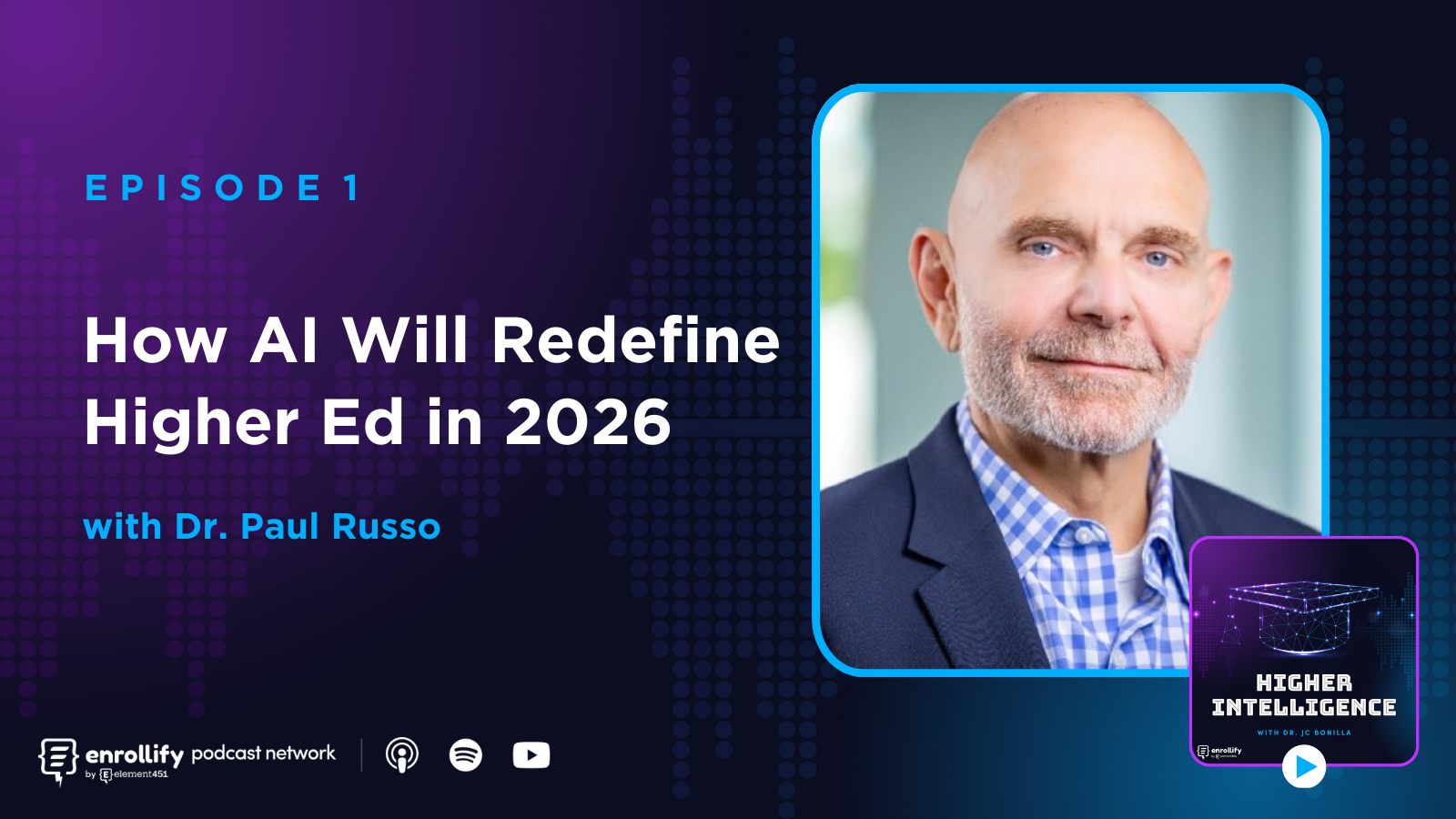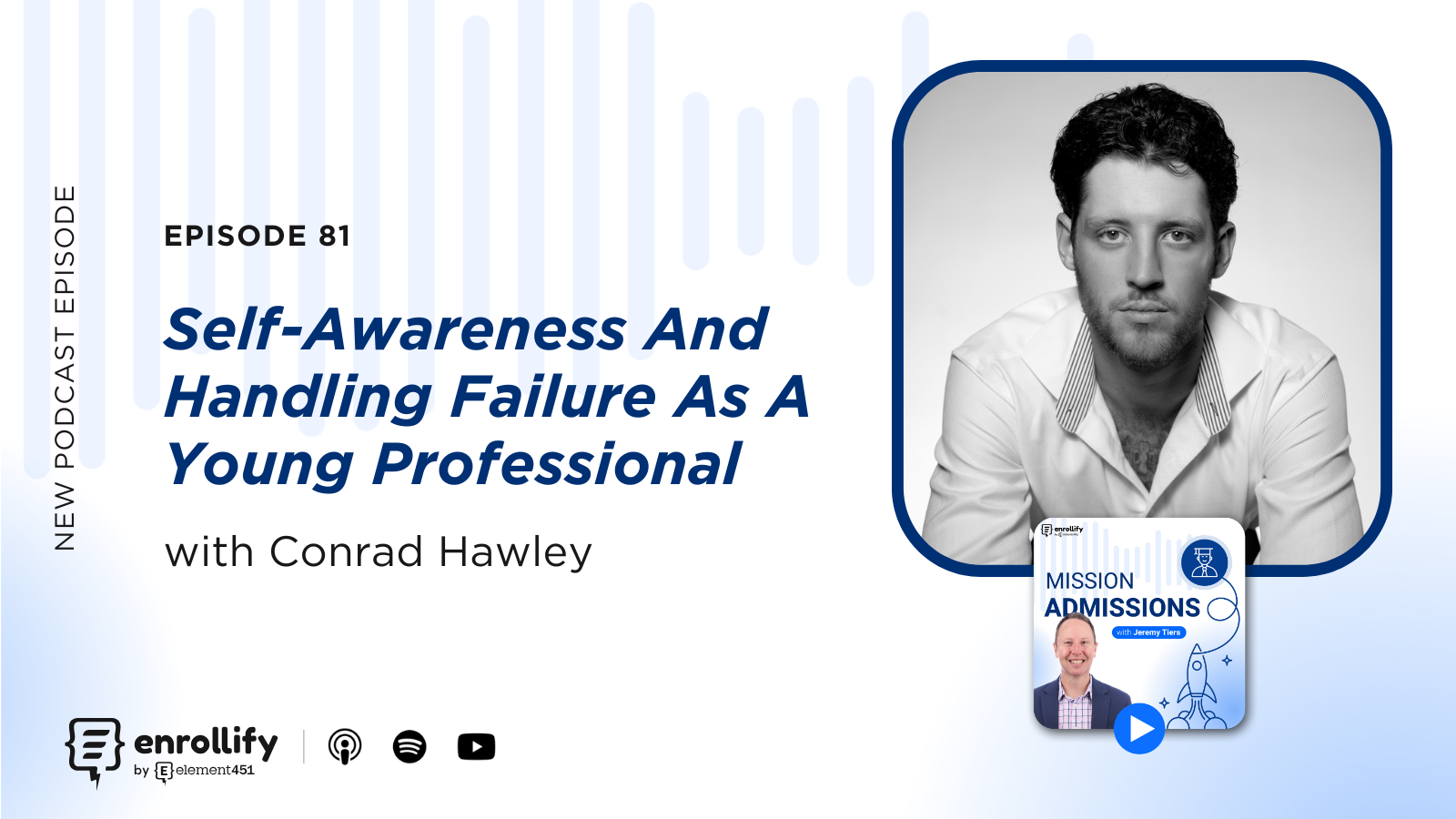About the Episode
About The Episode: In this first episode of a two-part series, Generation AI explores the foundational concepts of proactive AI assistants and their potential impact on higher education. Hosts Ardis Kadiu and Petar Djordjevic break down the key components of AI agent systems, explaining how they differ from reactive systems and why they matter for the future of student engagement. They discuss the importance of memory, context, and goal-oriented behavior in AI agents, setting the stage for part two's deep dive into practical applications. This episode is essential listening for higher education professionals looking to understand the basics of AI agent systems before exploring their implementation in recruitment and student support.
Key Takeaways
- From Reactive to Proactive AI: Proactive AI agents anticipate user needs and take autonomous actions to achieve goals.
- Memory and Context: Effective AI agents require robust memory and context windows to manage complex, multi-step tasks.
- Collaboration of AI Agents: Just as organizations rely on teamwork, AI agents will need to coordinate their efforts to deliver cohesive solutions.
- Applications in Higher Ed: AI agents can enhance student engagement, simplify administrative processes, and improve marketing efforts through automation and personalization.
Episode Summary
What Are Proactive AI Agents?
Proactive AI agents differ from traditional reactive systems like chatbots. Instead of waiting for user prompts, these agents analyze data, predict needs, and act autonomously to achieve specified goals. For example, in a university setting, a proactive AI agent could monitor application trends and automatically engage with prospective students based on their interests and behaviors.
Why Now?Advances in large language models (LLMs) like GPT-4 and Gemini have enabled reasoning capabilities that underpin these systems. Coupled with improved context windows and retrieval mechanisms, proactive agents can handle increasingly complex tasks.
The Building Blocks of Proactive AI
1. Goal-Oriented Design
Proactive AI agents operate based on clear goals. In higher ed, an agent might be tasked with ensuring admitted students complete their enrollment. The agent analyzes interactions, anticipates barriers, and initiates actions to move students closer to that goal.
2. Memory and Context Management
Memory is crucial for AI agents to track progress and build on prior knowledge. For example:
- Short-Term Memory: Retains immediate inputs for reasoning.
- Long-Term Memory: Stores user preferences and past interactions.This layered approach allows agents to deliver nuanced and contextually relevant outputs.
3. Collaboration Among AI Agents
Rather than one agent doing everything, future systems will feature specialized agents for specific tasks—such as scheduling, content creation, or analytics. A central orchestrator or "manager" agent will coordinate their efforts, much like a human project manager ensures a team stays aligned.
Applications in Higher Education
1. Student Engagement
Proactive agents can analyze student data to identify at-risk students and send personalized support messages. They can also help with outreach, ensuring no prospective student falls through the cracks.
2. Marketing Campaigns
AI agents can automate the creation of marketing campaigns. For example, one agent generates personalized emails, another selects visuals, and a third optimizes messaging for specific platforms.
3. Administrative Assistance
Proactive agents can streamline administrative workflows by handling repetitive tasks, such as scheduling meetings or managing course rosters, freeing staff to focus on strategic initiatives.
Challenges and Ethical Considerations
1. Balancing Automation and Human Oversight
While proactive agents can handle many tasks autonomously, keeping humans "on the loop" ensures oversight and prevents potential misuse.
2. Data Privacy
Proactive systems rely heavily on data. Institutions must prioritize ethical data use and compliance with regulations like FERPA.
3. Avoiding Overload
With multiple agents running simultaneously, systems must ensure they provide only the most relevant information to users, avoiding unnecessary notifications.
Connect With Our Co-Hosts:
Ardis Kadiu
https://www.linkedin.com/in/ardis/
https://twitter.com/ardis
Dr. JC Bonilla
https://www.linkedin.com/in/jcbonilla/
https://twitter.com/jbonillx
About The Enrollify Podcast Network:
Generation AI is a part of the Enrollify Podcast Network. If you like this podcast, chances are you’ll like other Enrollify shows too! Some of our favorites include The EduData Podcast and Visionary Voices: The College President’s Playbook.
Enrollify is produced by Element451 — the next-generation AI student engagement platform helping institutions create meaningful and personalized interactions with students. Learn more at element451.com.







